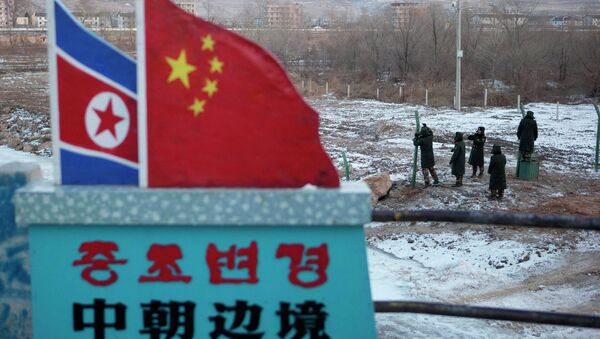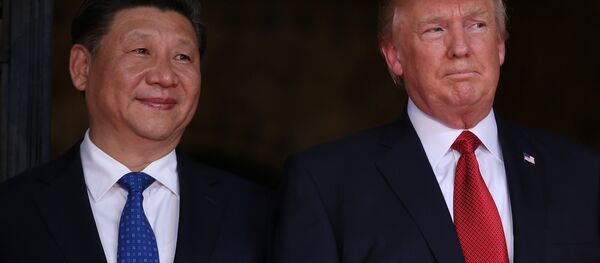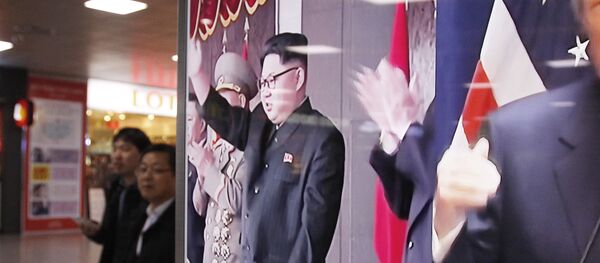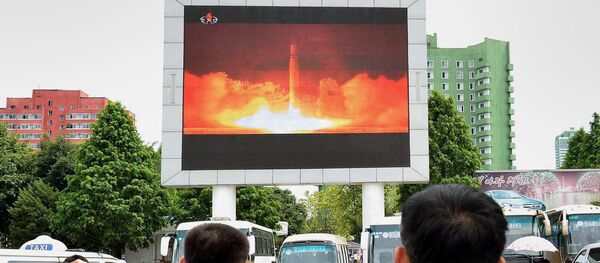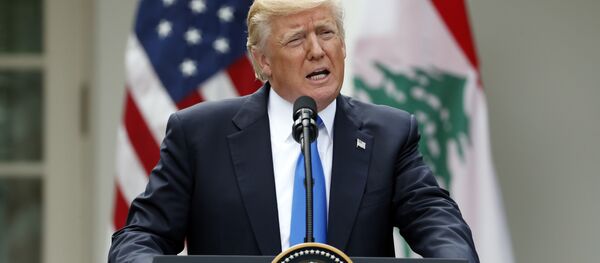"China opposes both nuclear proliferation and war on the Korean Peninsula. It will not encourage any side to stir up military conflict, and will firmly resist any side that wants to change the status quo of the areas where China's interests are concerned. … The Korean Peninsula is where the strategic interests of all sides converge, and no side should try to be the absolute dominator of the region," the publication read.
According to The Washington Post, The Global Times is "not an official mouthpiece" of the Chinese Communist Party, however, the statement seems to accurately reflect Beijing’s official stance on the matter.
The publication came after US President Donald Trump stepped up his rhetoric against North Korea, threatening Pyongyang with a military solution.
Ba Dianjun, director of the Center for Northeast Asia at Jilin University, underscored that despite the Mutual Aid and Cooperation Friendship Treaty between China and North Korea, Beijing will not come to help if Pyongyang attacks first.
"At the same time, if the US strikes first and starts a war on the Korean Peninsula, China and other countries, including Russia, Japan and South Korea, will be against it. In the current situation a little spark can ignite a fire in the region. The potential conflict would expand and result in tremendous damages to the neighboring nations. Such powers as China and Russia are against escalating the tensions. At the same time, one should not forget that Beijing and Moscow do not favor the policy of the North Korean regime. But they are also against Washington’s threats and a military solution," the expert told Sputnik China.
According to Konstantin Asmolov, an expert at the Institute for Far Eastern Studies at the Russian Academy of Sciences, the publication in The Global Times clearly reflects Beijing’s official position.
"The message clearly says that Beijing will punish anyone who escalates tensions on the Korean Peninsula," Asmolov pointed out.
The expert added that China sent a stern warning over the situation in the region.
The expert did not predict a full-fledged conflict in the region, but yet taking into account the current level of tensions, the situation risks spinning out of control.
In turn, Tong Zhao, a fellow in Carnegie’s Nuclear Policy Program based at the Carnegie-Tsinghua Center for Global Policy, said that North Korea will not engage in an open military confrontation.
"Pyongyang understands that if it launches a nuclear missile this would risk provoking nuclear war. North Korea just wants to show off its military power," Tong said in an interview with Sputnik.
Last month, Pyongyang conducted two tests of intercontinental ballistic missiles. According to the Korean Central News Agency, the latest launch on July 28 was successful; the missile reached the altitude of 3,725 kilometers and traveled 998 kilometers, for about 47 minutes, before falling into the Sea of Japan.
The US and North Korea have exchanged a series of warmongering statements over the recent week.
For example, US President Donald Trump said that North Korea "will be met with fire and fury" if Pyongyang does not reign in its "threats to the US."
In response, North Korean state-run news agency KCNA reported that the North Korean Strategic Force is carefully considering examining the operational plan for making an "enveloping fire at the areas around Guam" with ballistic missiles.
The US president later stated that US military solutions are "fully in place, locked and loaded" should North Korea "act unwisely."
Russia has repeatedly voiced concern over the escalation on the Korean peninsula. During Chinese President Xi Jinping's visit to Moscow earlier this summer, the Russian and Chinese foreign ministries issued a joint statement proposing ways to de-escalate the situation. Moscow and Beijing called on Pyongyang to stop nuclear tests and urged Washington and Seoul to refrain from conducting joint drills.

